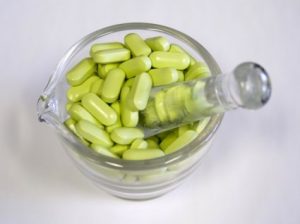Pharmaceutical industry experts have been buzzing recently about the U.S. Food & Drug Administration’s rejection of approval for Xarelto. Specifically, the decision is being lauded by Boehringer Ingelheim, the makers of Pradaxa, according to a recent news feature from FiercePharma.
 First, let’s look at what these two drugs do. Xarelto and Pradaxa and competitors (along with Eliquis and Savaysa) are in the big money market of New Oral Anticoagulants (NOACs). This new class of drugs is designed to treat patients who suffer from various potentially deadly clotting disorders that are not caused by a heart valve defect. Patients who suffer from one of these medical conditions such as atrial fibrillation (Afib) must take a blood thinner or anti-clotting agent to prevent dangerous clots from forming, which may result in a painful death.
First, let’s look at what these two drugs do. Xarelto and Pradaxa and competitors (along with Eliquis and Savaysa) are in the big money market of New Oral Anticoagulants (NOACs). This new class of drugs is designed to treat patients who suffer from various potentially deadly clotting disorders that are not caused by a heart valve defect. Patients who suffer from one of these medical conditions such as atrial fibrillation (Afib) must take a blood thinner or anti-clotting agent to prevent dangerous clots from forming, which may result in a painful death.
For decades, patients who need a blood thinner would take Coumadin (Warfarin), and this medicine does work very well. The problem with it is that the dosage must be monitored very carefully. If a patient eats certain foods, such as those high in Vitamin K like leafy green vegetables, the patient can actually suffer a serious internal bleeding disorder. They also must have routine blood tests to make sure this bleeding disorder does not occur. If a bleeding disorder does occur, the doctors need a quick way to stop the blood thinner from working so the patient will clot normally. There is an antidote for Warfarin. Those in the industry like to use the term reversal agent, because an antidote is normally associated with poison.
These NAOCs were marketed as an alternative to Warfarin that does not need constant monitoring, because one dose is okay for all patients. As our Boston Pradaxa injury lawyers have seen, that is not actually true, as many people developed serious internal bleeding disorders, including intracranial bleeding. What makes these disorders much worse than those caused by Warfarin is that there was no way for a patient to know it was going to happen, and there was no antidote, so there was literally nothing emergency room doctors could do as patients were dying, and many of them did actually die.
These companies did not want to lose any money from declining sales, so they started to work on antidotes for their drugs, and the makers of Pradaxa came up with something known as Praxbind. The FDA approved Praxbind as a Pradaxa reversal agent, and now they can say that if you start bleeding to death, there is an antidote. Now, Johnson & Johnson, makers of Xarelto, tried to create their own antidote for their drug, but the FDA recently rejected their application, as more safety testing is needed, and they are not sure if works.
This is why the makers of Pradaxa are celebrating. They are not saying that their own NOAC does not cause deadly bleeding like Xarelto. Rather, they are saying, “If you start bleeding, we have a cure and our competitors do not.”
If you are a victim Pradaxa and live in Massachusetts, call Jeffrey Glassman Injury Lawyers for a free and confidential appointment — (617) 777-7777.
Additional Resources:
Boehringer’s Pradaxa keeps its antidote edge as FDA swats down Portola contender, August 22, 2016 , FiercePharma
More Blog Entries:
Risk for Internal Bleeding after Taking Pradaxa, August 22, 2014, Boston Dangerous Drugs Injury Lawyer Blog
 Product Liability Lawyer Blog
Product Liability Lawyer Blog

